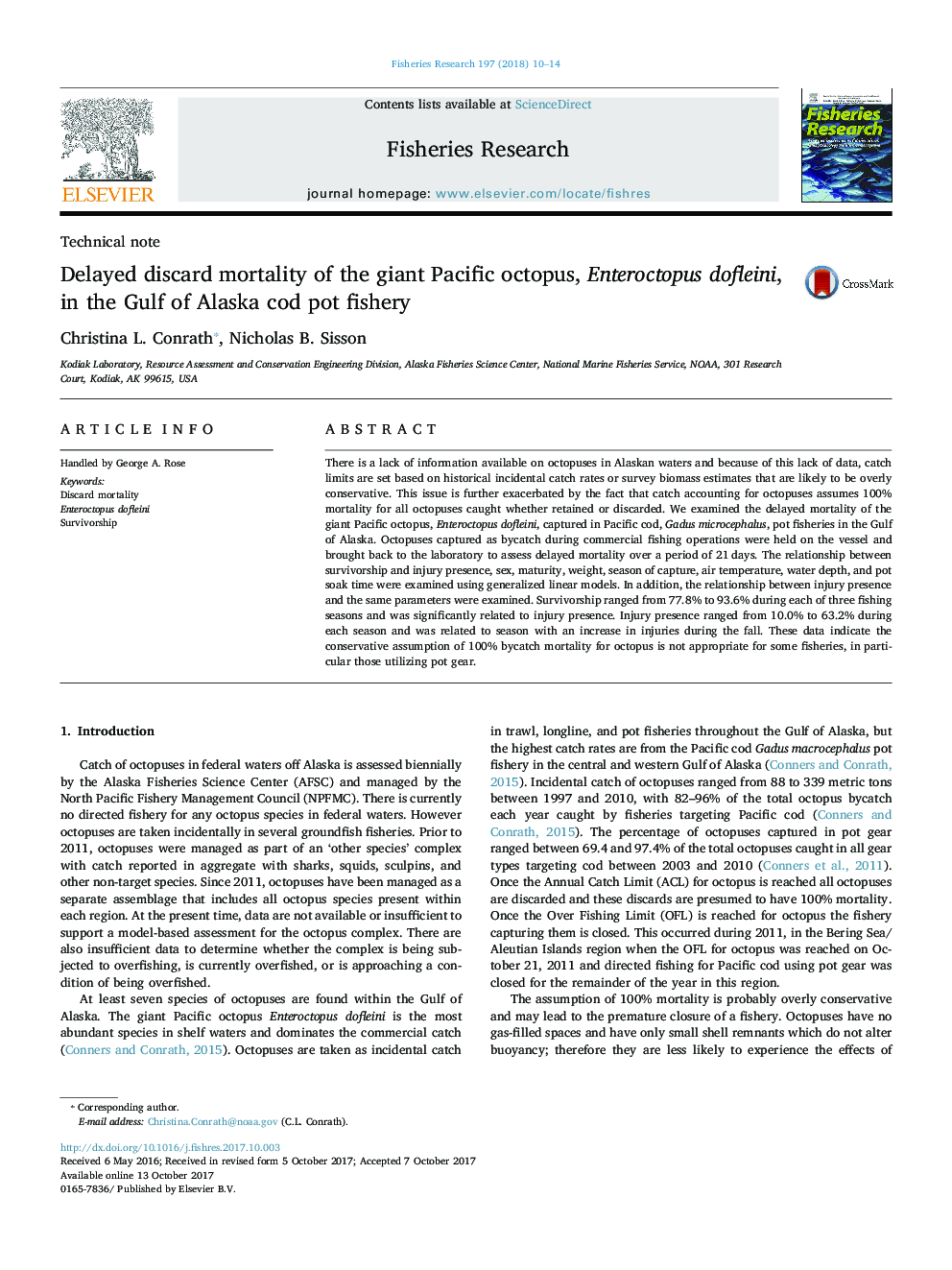| Article ID | Journal | Published Year | Pages | File Type |
|---|---|---|---|---|
| 5765435 | Fisheries Research | 2018 | 5 Pages |
â¢We examined the delayed discard mortality of giant Pacific octopus captured in the Pacific cod pot fishery.â¢Delayed mortality of octopus was assessed over a period of 21 days.â¢Survivorship of octopus ranged from 77.8% to 93.6% during each of three fishing seasons and was significantly related to injury presence.â¢Injury presence ranged from 10.0% to 63.2% and was related to season with an increase in injuries during the fall.â¢These data are necessary to make informed decisions for the management of octopus.
There is a lack of information available on octopuses in Alaskan waters and because of this lack of data, catch limits are set based on historical incidental catch rates or survey biomass estimates that are likely to be overly conservative. This issue is further exacerbated by the fact that catch accounting for octopuses assumes 100% mortality for all octopuses caught whether retained or discarded. We examined the delayed mortality of the giant Pacific octopus, Enteroctopus dofleini, captured in Pacific cod, Gadus microcephalus, pot fisheries in the Gulf of Alaska. Octopuses captured as bycatch during commercial fishing operations were held on the vessel and brought back to the laboratory to assess delayed mortality over a period of 21Â days. The relationship between survivorship and injury presence, sex, maturity, weight, season of capture, air temperature, water depth, and pot soak time were examined using generalized linear models. In addition, the relationship between injury presence and the same parameters were examined. Survivorship ranged from 77.8% to 93.6% during each of three fishing seasons and was significantly related to injury presence. Injury presence ranged from 10.0% to 63.2% during each season and was related to season with an increase in injuries during the fall. These data indicate the conservative assumption of 100% bycatch mortality for octopus is not appropriate for some fisheries, in particular those utilizing pot gear.
